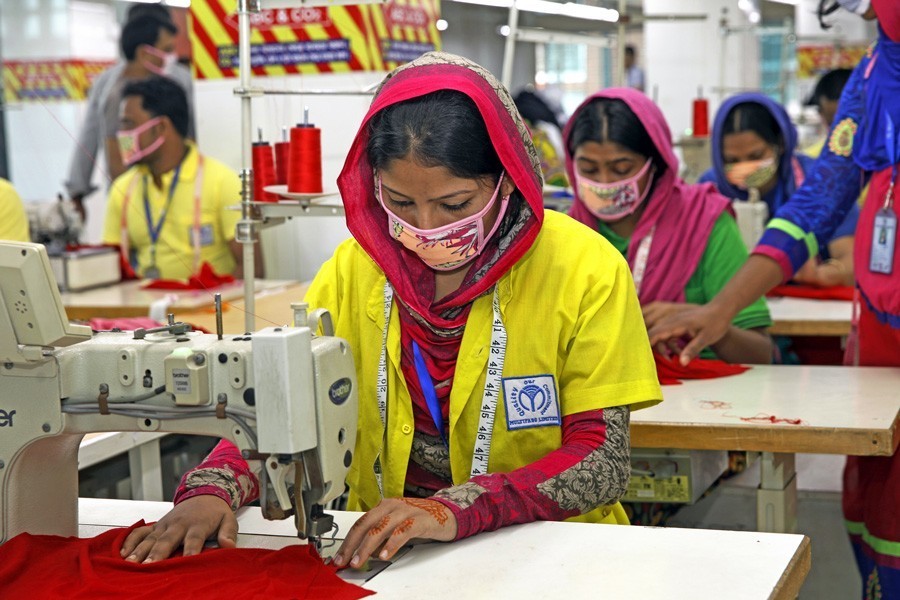
Published :
Updated :

The ready-made garment (RMG) workers have long been pressing for making their wages adjustable for inflation. The issue came to the fore once again on Saturday when a platform of 52 organisations working for the RMG workers demanded increasing minimum monthly wage for the workers to Tk 16,000 by August this year. The minimum monthly wage of the RMG workers that came into effect on January 01, 2014 amounts to Tk 5,300.
Meanwhile, a government-formed Wage Board is working on a new wage structure for the RMG workers at the insistence of the factory owners.
The platform of 52 organisations referred to a report that shows Bangladesh's apparel workers are getting the lowest wage in Asia. It mentioned that a survey conducted in Dhaka, Chattogram, Gazipur, Ashulia and Narayanganj found that a four-member family of a garment worker needs at least Tk 19,217 per month to survive.
Banglasdesh RMG workers now get US$ 67 (Tk 5,300) while those in Myanmar get US$ 86, Pakistan US$ 124, Vietnam US$ 154, India US$ 168 and Cambodia US$ 170.
It is, however, reassuring that the Wage Board announced that it would unveil the new wage structure for garment workers within months. In this regard, the Board has also asked the representatives of RMG owners and workers to submit their respective proposals for the minimum monthly pay applicable for entry-level garment workers.
It is feared that many owners may plead their inability to honour the possible award of the Wage Board. Hence, there has for sometime been a campaign to convince global brands and retailers to agree on fair pricing and sourcing of garment products from Bangladesh for ensuring affordability of the owners to pay a living wage to the workers. Trade diplomacy can also be called into action. At a recent seminar on responsible garment supply chain organised in The Hague, the Bangladeshi garment manufacturers made such a demand. They said any discussion on wage increase has to be matched by commensurate real increase in pricing for the actual producers within the global apparel supply chain.
A number of key aspects were shared to illustrate the way the RMG manufacturers in Bangladesh stepped forward in transforming garment manufacturing by adopting new values, approaches and technologies, pledging on labour rights and occupational safety. The need for European governments to engage with their respective brands and retailers was also stressed to urgently look at increasing the procurement price as part of making the apparel supply chain responsible and sustainable.
The garment workers' demand for at least Tk 16,000 as minimum monthly wage, with a basic salary of Tk 10,000, appears reasonable to many quarters. The workers' other demands, including 10 per cent annual increment, three months of apprenticeship period with basic salary and six months of maternity leave, do not sound impertinent or impractical when the current market dynamics are taken into account.
All concerned, including the government, the Bangladesh Garments Manufacturers and Exporters Association (BGMEA), and all trade bodies, should expedite the process of fixing a new minimum wage for the garment workers.


 For all latest news, follow The Financial Express Google News channel.
For all latest news, follow The Financial Express Google News channel.